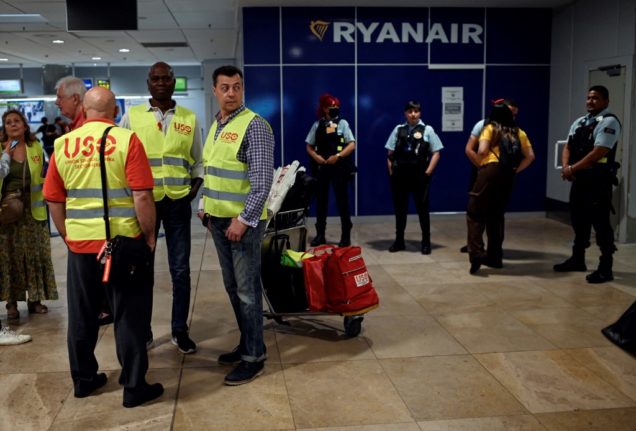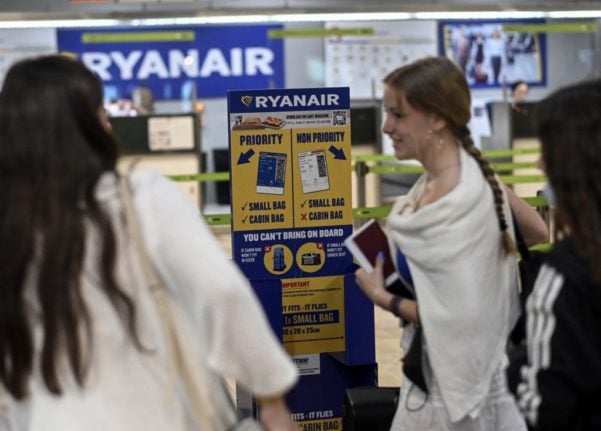Irish low-cost airline Ryanair on Friday decided to operate 100 percent of its scheduled flights to and from Spain, considering all of them protected by the minimum services decree approved by Spain’s Ministry of Transport.
The only flights which could not take off were those heading to Spain from Belgium, where the work stoppage led Europe’s biggest budget airline to cancel some of the 127 flights to and from Charleroi airport (near Brussels) that are scheduled from Friday to Sunday.
Spain’s Transport Ministry has argued there needs to be a balance between the “right to strike” and the “interest of travellers”.
However, it only ordered 73 to 82 percent of domestic flights to and from Spain’s mainland and its two archipelagos – the Canary and Balearic Islands – to be kept, and between 53 percent and 58 percent of its internal mainland flights to go ahead.
Unions said Ryanair went beyond what was required and forced staff to maintain 100 percent of flights, adding that they would take Ryanair to court as a result.
They also reported that the budget carrier summoned 80 percent more workers than on a normal day to carry out “imaginary” shifts.
“The company informed staff that all flights were subject to the minimum service, and threatened them with disciplinary action,” Ernesto Iglesias of local USO told reporters at Madrid airport.
The airline was not “respecting the law,” he added.

Ryanair boss Michael O’Leary has been dismissive of the strikes. “We operate two and half thousand flights every day,” he said earlier this month in Belgium.
“Most of those flights will continue to operate even if there is a strike in Spain by some Mickey Mouse union or if the Belgian cabin crew unions want to go on strike over here,” he told journalists.
Ryanair cabin crew unions in Portugal and Belgium have also called a three-day strike starting on Friday, and in Italy and France on Saturday.
The strikes come as air travel has rebounded since Covid-19 restrictions have been lifted.
But many airlines, which laid off staff during the pandemic, are having trouble rehiring enough workers, forcing them to cancel flights. That includes easyJet, which has been particularly hard hit by employee shortages.



 Please whitelist us to continue reading.
Please whitelist us to continue reading.
Member comments